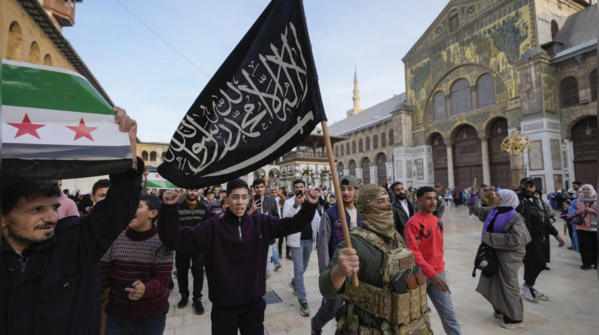- News
- World News
- Middle East News
- One week of 'new' Syria: Residents navigate life in wake of rebellion and end of Assad regime
One week of 'new' Syria: Residents navigate life in wake of rebellion and end of Assad regime

Rebel control
One week after the fall of President Bashar Assad, Syria is experiencing a significant shift as rebels take control of the capital, Damascus, and begin reshaping the country's future. (Photo: AP)

Transition under rebel control
While the transition has been largely peaceful, with minimal violence or reprisals, the country still to improve its ruined economy and infrastructure. (Photo: AP)

Celebrating Assad's ouster
As the Assad regime fell and rebels took over, people celebrated hoping for a better future. In one such celebration, Syrians gathered during a celebratory demonstration following the first Friday prayers in Damascus' central square. (Photo :AP)

Concerns in 'new' Syria
While most remain optimistic, many Syrians are also cautious as they face challenges like high unemployment, poverty, inflation, and a population deeply divided by years of war. (Photo: AP)

Rebuilding infrastructure
Rebels are also working to reopen key infrastructure, like the airport, where maintenance crews clean up debris and assess damaged planes, despite limited resources and low wages. (Photo :AP)

Assurances from rebel leaders
The rebel forces, including groups like Hayat Tahrir al-Sham, are working to reassure Syrians of their commitment to pluralism and tolerance and a peaceful transition with promises to build a better Syria. (Photo: AP)

Complex emotions
Residents of Damascus are navigating through a complex mix of emotions: excitement for newfound freedoms, grief over years of repression, and anxiety about the uncertain future. (Photo: AP)

Schools reopen
As new Syrian leaders strive to bring life back to normal in he aftermath of rebellion, authorities announced the re-opening of schools. (Photo: Reuters)

Cautious business resumption
In the streets of Damascus, some businesses cautiously resumed, with a few restaurants serving alcohol again, though others are more discreet in testing the mood. (Photo: AP)

Road ahead
While many Syrians are eager to rebuild their country, the road ahead remains fraught with difficulties, from trauma caused by war to the need for economic recovery and the reconciliation of divided communities. (Photo: AP)









